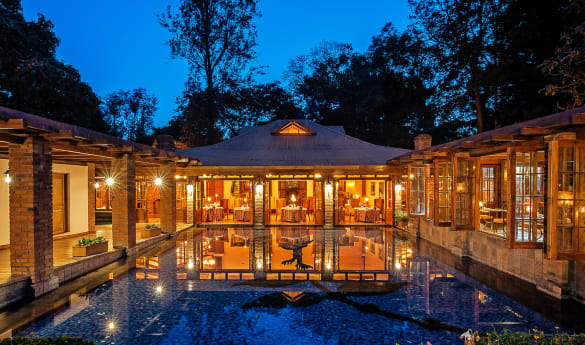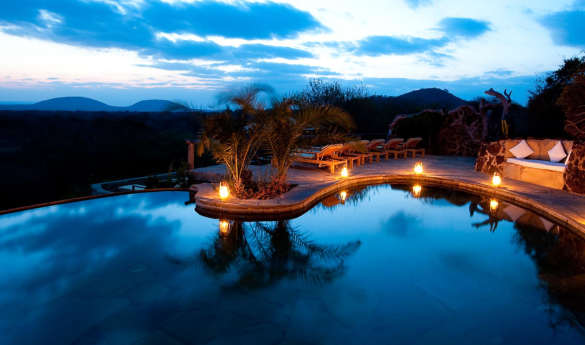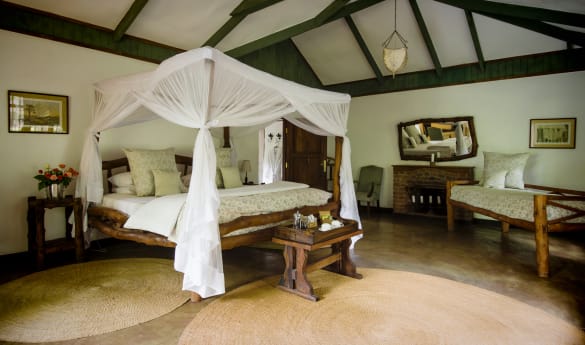Climb Kilimanjaro
Anyone who's summited Mount Kilimanjaro in Tanzania will tell you that few things in life will compete with the thrill of being perched atop ‘the roof of Africa’.

At 19,340 feet (5,895 meters), Uhuru Peak is the pinnacle of the tallest freestanding mountain in the world. Scaling it has become a rite of passage for climbers around the globe. It’s a place where dreams come true and lifelong friendships are forged. The great news is that because it demands a slow and steady approach, with a little training it’s accessible to almost everyone.
About Mount Kilimanjaro
Set in the heart of Kilimanjaro National Park, Mount Kilimanjaro (affectionately known as ‘Kili’) is an inactive ‘strato’ volcano comprising three distinct volcanoes: Mawenzi, Shira and Kibo. Thought to have emerged 750,000 years ago, Mawenzi and Shira are now extinct while Kibo, the highest, is merely dormant. Kibo was renamed Uhuru Peak (Uhuru means ‘freedom’ in Swahili) in 1961.
Climbers are often surprised at the variety of terrain they travel through, starting with farmland below then on through rainforest and even alpine meadows. Near the summit, Kili has several glaciers in spite of the fact that it’s set just three degrees south of the equator. Some of our favourite routes include Machame and Lemosho.
Climbing with Scott Dunn
We pride ourselves on our expert knowledge—many of us have climbed Mount Kilimanjaro ourselves, some multiple times. We understand that it’s a serious undertaking, but have successfully helped people of all backgrounds to prepare for the challenge, from solo climbers to families and honeymooners.
We may not be the cheapest but we strongly believe that the details which may cost you a little extra make all the difference to your experience and safety. We only ever use the best guides and crews (the heart and soul of your trek) via operators who take excellent care of their employees. As a result, our success rate is around 98%.
When speaking to travel companies, consider these details:
-
The price of our Kilimanjaro climb always includes park fees, transfers, and accommodation in Arusha before and after your climb.
-
Our expeditions are always ‘non-participatory’. You climb with a full camp team and support crew. and portable private toilet tent.
-
Three course meals are freshly prepared by your chef and served in a dining tent with proper seating.
-
We only ever use new, top of the range kit and equipment. You’ll climb with first rate guides who have constant training. All climbs are equipped with supplementary oxygen, pulse oximeters, and customized evacuation stretchers. All the guides are CPR trained and have excellent emergency training. Importantly, the crew has the same access to emergency aid as paying climbers.
-
The sole job of one crew member is to run ahead to the next camp site to bag the most comfortable spot so you can get a good night’s rest.
-
You're supported by a full operations team at base which is in constant contact with your head guide who monitors your progress.
Our top Kilimanjaro climb tips
-
Always pack your essentials (down jacket, walking boots, etc.) in your hand luggage so that if, heaven forbid, your luggage gets lost you’ll still be able to climb.
-
Candy is great for sustaining your sugar levels on long climb days and for sharing with your fellow climbers and crew.
-
Walk as slowly as you can on the way up Kilimanjaro to minimize the effects of altitude. As you walk, remember to admire the fascinating flora and fauna, and the stunning scenery.
-
Drink plenty on Kilimanjaro, even when not thirsty. Decide how many liters you need to stay hydrated and stick to it. An integrated water carrier (Camelback or similar) is great for this.
-
Eat plenty during the climb even when you’re not hungry. Keeping your energy levels up will help combat the cold and altitude.
-
Mix flavored cordial or fruit squash with the water while climbing to disguise the taste of water purification tablets.
-
Pack an antibacterial hand gel.
-
Take cash to tip your crew on the last day.
Where to Stay
Why Scott Dunn?
Unique to You
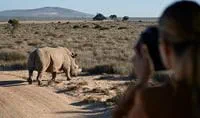
- We listen to your travel goals and craft unique trips that are personalized to you.
- We’re with you every step of your life’s travel journey, from honeymoons to family trips and beyond.
Seamless Service
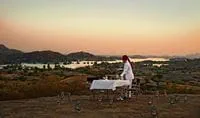
- Global offices in the UK, US, and Singapore for 24/7 seamless service.
- We offer flexibility if your plans change so you can book with confidence and peace of mind.
Carefully Curated Collection
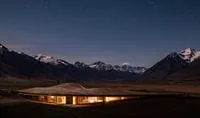
- We’ve curated an elevated collection of accommodation, experiences, and guides.
- Committed to fostering close global relationships to continue bringing you unique experiences.
Luxury in Every Sense
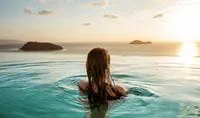
- We deliver a sense of luxury that matters most to you.
- Awarded Condé Nast Traveler’s Top Travel Specialists in the World 12 years in a row.
